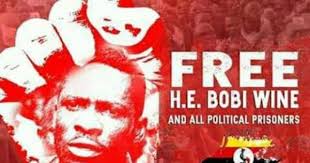THE state of affairs in East Africa’s politics is very worrying even in places that used to be regarded peaceful. Peace, security and stability have been shaken to the roots. Dictatorship is on its rapid rise, and public unrest is rife.
Of course, this is a result of strongman politics culture that is engulfing the entire region. But, apart from wailing citizens, is there any responsible international organization that appears to be caring? The international community seems to be sitting back, preparing for diplomatic reaction after the worst has happened.
Behold what is happening in these countries:
UGANDA: Opposition leader Kiiza Besigye has been under house arrest for months – a prisoner at his home, in his country. Now, there is public uprising in defense of Bobi Wine, a musician and opposition Member of Parliament who was seriously beaten up and detained by the army early this week. His cardinal sin is criticizing President Yoweri Museveni. Yet the authorities are taking him to court just to torture him further.
TANZANIA: President John Magufuli, wary of opposition, is using state machinery to crackdown and silence critics. Tundu Lissu, the opposition chief whip and one of Magufuli’s most outspoken critics, was gunshot in September 2017. He survived miraculously but he has since been in hospital (in Nairobi and Brussels).
Nine top leaders of the main opposition party (Chadema) – including members of parliament – are in court to answer numerous framed up charges. They are charged with conspiracy to commit offences, unlawful assembly, rioting after proclamation, raising discontent and ill-will for unlawful purposes, sedition and inciting commission of offences.
The authorities are linking Freeman Mbowe, Chadema chairman and leader of official opposition in parliament, with the death of Akwilina Akwiline, a college student shot dead by police in February 2018 as they used live bullets to disperse demonstrators including Mbowe. The culprits have been exonerated as the strongman is exerting much pressure on the judiciary to influence court rulings against opposition leaders.
He wants the top opposition leaders incarcerated by the end of this year in order to give himself a breathing space before next year’s local government elections and 2020 general elections. Hundreds of innocent souls have been abducted, strangled, drowned, shot and killed in the last three years. No explanation. No arrests. No prosecution.
RWANDA: When Diane Rwigara expressed intention of running for president in 2017 against President Paul Kagame, government authorities harassed and frustrated her. Eventually, she and her mother were arrested and detained – accused of forgery and inciting insurrection. Their family assets were seized, and have now been auctioned.
BURUNDI: It is hardly safe and stable. Thousands of Burundian refugees still live abroad and in neighboring countries.
As of now, KENYA is the only shining example with a political handshake that is changing and shaping the country’s political and economic history.
Do we envisage neighboring countries borrowing a leaf from Kenya in a bid to stabilize the East African region? What is the United Nations thinking about this situation? Can silent diplomacy alone bring these dictators back to their senses? Is the international community making use of lessons learnt from the 1994 Rwanda genocide?
In 2004 when the world was marking 10 years after the Rwanda genocide, UN Secretary General Kofi Annan admitted to have committed a sin of omission. In his statement, he noted:
“The genocide in Rwanda should never, ever have happened. But it did. The international community failed Rwanda, and that must leave us always with a sense of bitter regret and abiding sorrow.
“If the international community had acted promptly and with determination, it could have stopped most of the killing. But the political will was not there, nor were the troops.
“If the United Nations, government officials, the international media and other observers had paid more attention to the gathering signs of disaster, and taken timely action, it might have been averted.
“Warnings were missed. I recall a 1993 report by a United Nations special rapporteur that spoke specifically of an impending catastrophe. The international community is guilty of sins of omission.”
How long will the international community give a deaf ear to public outcries on atrocities taking place in Tanzania, Rwanda, and Uganda? Who else do you want dead before you take action?










